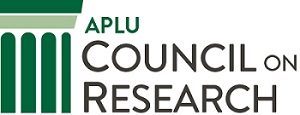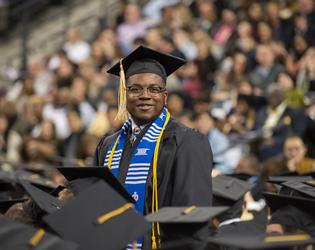
CoR NEWSMarch 17, 2016
To: APLU Council on ResearchFrom: APLU CoR Staff
Happy St. Patrick’s Day. We have an additional item to share with you this week.
- Department of Energy Stakeholder Briefing on “Mission Innovation”
The Department of Energy has asked that we share the below meeting invitation with you. For those of you who would like to participate from outside of D.C., the agency has arranged a webinar and conference call option.
U.S. Department of Energy – Mission Innovation Stakeholder Briefing: Colleges & Universities
Friday, March 18, 2016
2:30 pm | Eastern Daylight Time (New York, GMT-04:00) | 1 hr 30 mins
Please use this link to register for the webinar/conference call. After your request has been approved, you will receive instructions for joining the meeting. If you have already registered for this meeting, you do not need to register again. Can’t register? Contact support.
Please see additional details, including information on attending in person, in the below email from DOE.
**
Dear University Colleagues,
The Department of Energy (DOE) invites you to join DOE Senior Leadership for a roundtable discussion on the recently announced Mission Innovation, an initiative to dramatically accelerate public investment in clean-energy RD&D. Mission Innovation aims to double the U.S. investment in early-stage clean energy innovation over the next 5 years to help develop new energy technologies needed to support economic growth and competitiveness, strengthen energy security, increase access to clean and affordable energy, and enable the global community to meet our shared clean energy and climate goals.
You may know that a complementary but separate initiative is being undertaken by the Breakthrough Energy Coalition, led by Bill Gates, to commit unprecedented levels of private capital to build on this public investment and bring transformational energy breakthroughs to the market. U.S. colleges and universities will play a pivotal role in helping create and advance these new breakthroughs in clean energy innovation, and this roundtable will provide an opportunity for you to share your insights and hear from DOE leadership on how to build on the Department’s longstanding support for the university community to advance the goals of Mission Innovation.
This meeting will take place on Friday, March 18, 2016 at 2:30pm in room 7E-069 at the Department of Energy Forrestal Building, 1000 Independence Ave. S.W., Washington, DC 20585. Please RSVP to Georgette.Furukawa-Martinez@hq.doe.gov no later than close of business on Wednesday, March 16.
DOE Roundtable Participants include:
Kevin Knobloch, Chief of Staff
Lynn Orr, Under Secretary for Science and Energy
Melanie Kenderdine, Director, Office of Energy Policy and Systems Analysis
Brad Crowell, Assistant Secretary, Office of Congressional and Intergovernmental Affairs
Chris King, Principal Deputy Assistant Secretary, Office of Congressional and Intergovernmental Affairs
Ellen Williams, Director, Advanced Research Projects Agency-Energy (ARPA-E)
Cherry Murray, Director, Office of Science
Please note it is not the intent, nor are you being solicited by the Department, to reach a consensus on any matter. You are being invited because of your personal knowledge and expertise in energy innovation and your interest in public research investment.




Stay Connected
X (formerly Twitter)
Facebook
YouTube
LinkedIn
RSS